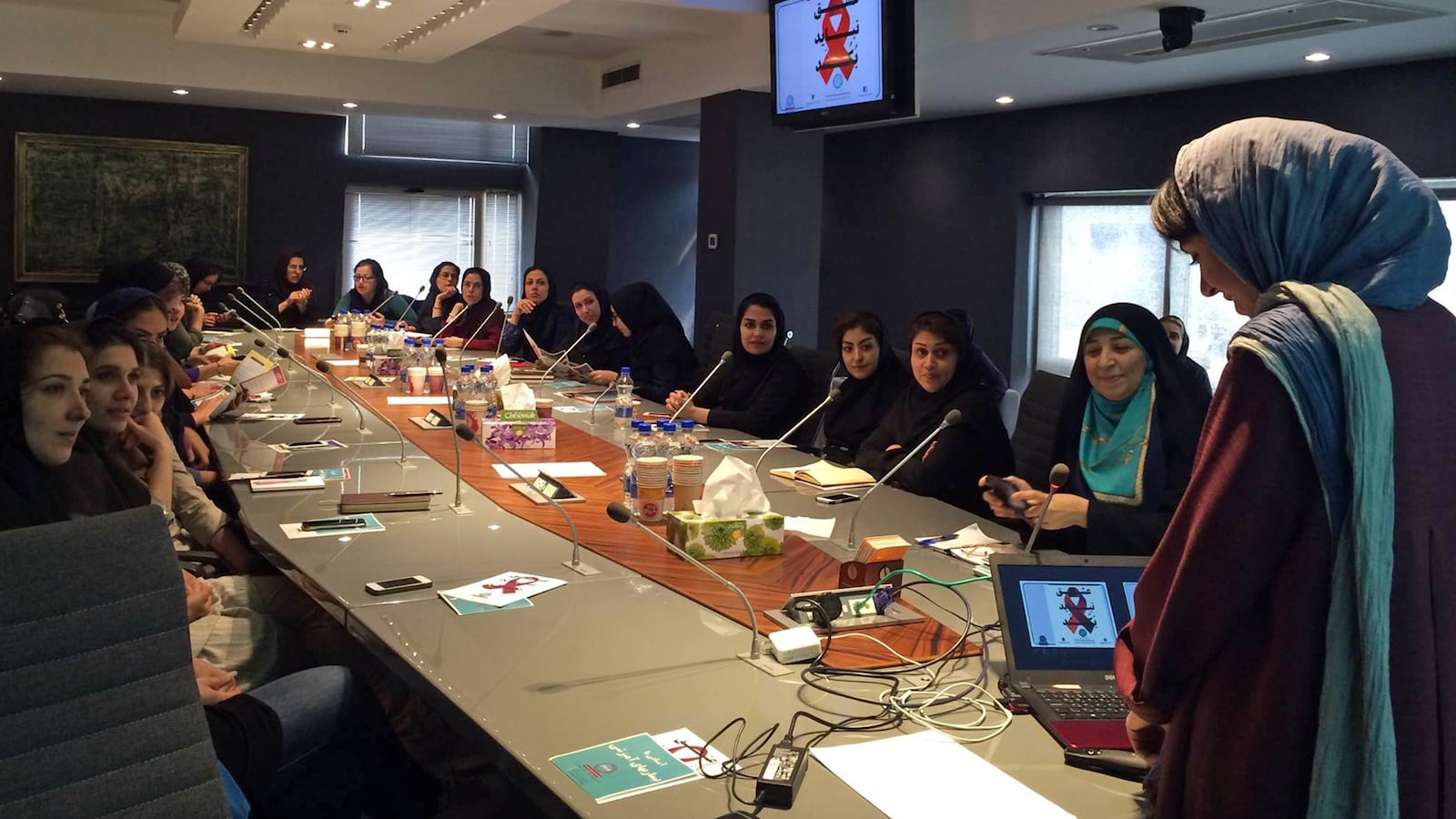In 2013, 27-year-old Narges Dorratoltaj was sitting in an infectious diseases class at Virginia Tech. Just as the syllabus dictated, her professor began to talk about sexually transmitted diseases (STDs).
Unlike her fellow students, however, Dorratoltaj’s expression changed to one of confusion. She had never heard of chlamydia, gonorrhea, or any of the other infections mentioned.
Dorratoltaj’s childhood friend, Yassi Ashki, had a similar experience. Despite coming to the U.S. six years before her, Ashki was flustered by STDs and sex education, surprised to see how open her new American school was. Just a few days after starting Indiana University, Ashki noticed shelves filled with STD brochures and a basket full of condoms in the health center. She hurriedly picked up as many brochures as she could, eager to read and learn.
Both women had moved to the U.S. from the Iranian capital of Tehran. Both were in their twenties. Both came from well-educated families. So why were they so clueless when it came to their own sexual health?
Despite pursuing an effective birth control program for over two decades, sex and discussing it in Iran is seen as a taboo topic, to be learnt about after marriage. The younger generation, however, is flouting the premarital sex law. A 2007 study in the Journal of Adolescent Health surveyed over 1000 Iranian boys between the ages of 15 and 18 and found that 28 percent reported sexual experiences outside of marriage; 68 percent admitted to not using condoms and/or having multiple sexual partners.
And women are suffering from this as well: Hundreds of adolescent girls and adults in Iran were interviewed in 2012 for a paper published in BMJ Sexual and Reproductive Health, citing reasons like government reluctance, parental embarrassment, and negative attitudes plus a lack of confidentiality from health providers.
Dorratoltaj and Ashki didn’t think that this lack of sex education made sense. So along with three other students in 2014, they began to translate sexual health resources from the Centers for Disease Control and Prevention (CDC), Mayo Clinic, and Planned Parenthood, publishing it onto a site they named Ctrl+S.
“We asked around and found out that most of our friends had minimal knowledge about STDs,” Dorratoltaj told The Daily Beast. “It wasn’t because they weren’t sexually active, but coming from the lack of education about these diseases in school and at home. Teenagers are feeding their curiosity with unreliable sources—mostly porn.”
Understandably, this has led to a public health crisis. According to a World Health Organization (WHO) estimate, more than 26 million people in the Middle East and North Africa region have curable STDs. In Iran, there are at least 66,000 people living with HIV with little access to vital resources or even knowledge of their status. The country is also suffering from an infertility crisis believed to be caused by rising STD levels. Roughly a quarter of Iranian couples are unable to conceive naturally; compare that to the six percent infertility rate in the U.S., according to a 2009 estimate.
That makes Ctrl+S a vital organization for not just adolescents but married couples as well. What started as a basic educational tool has become a fully-fledged organization, RAH Foundation, raising thousands of dollars in crowdfunding and helping young people living in the Middle East and North Africa learn about chlamydia, herpes, gonorrhea, syphilis, HPV and HIV/AIDS.
It’s especially revolutionary given that in Iran, the general consensus from the government and older generations is that teaching youth about sex only encourages promiscuity. (In fact, global reviews of sex education programs have found that knowledge of protection and disease actually delays the age of first intercourse and leads to safer sex overall.) With schools in Iran abstaining from sex education, Ashki and Dorratoltaj noticed that young people were forced to look online for information.
The road to creating Ctrl+S hasn’t been without bumps. When asked if there’s a story behind the name, Dorratoltaj joked: “Yes. We’re a bunch of nerds who work with computers all the time and all of us had the experience of forgetting to push Ctrl+S, ruining hours of unsaved work. It’s a metaphor to show that Ctrl+S can help save your sexual health.”
Ashki and Dorratoltaj are constantly adding new features. After receiving many deeply personal questions, they asked a number of doctors in the U.S. for help, allowing Ctrl+S users to have any question answered by a Farsi-speaking expert within 24 hours. Dorratoltaj says the most common misconception is the belief that HIV can be contracted through intercourse despite neither partner having the virus. Medical advisers have answered over 19,000 questions in the two years since.
“We’re amazed by the feedback we’ve received,” the pair said over email. “Older people were more skeptical of the idea—probably because they didn’t consider it a serious problem. But we had a surprisingly good reaction from younger people. We were starting to address a very serious issue that they were facing from a non-judgmental and totally scientific perspective without feeding the taboo.”
Skeptics have turned a corner with many becoming firm supporters of the organization’s work. “They see how their children and friends have been educated by us,” Dorratoltaj said.
Ctrl+S has also branched out into in-person workshops specifically created for rural areas with little internet access. After much discussion, Iran’s Ministry of Health and Medical Education gave RAH Foundation the thumbs up to host interactive classes around the country. (This decision may have something to do with the country committing to ending the HIV/AIDS crisis by 2030 as well as a growing understanding of the importance of education.)
A number of volunteers, trained by Ashki (who has since returned to Iran) teach people of all ages about the signs and symptoms of STDs as well as preventative methods and treatment options. Two further workshops have been added: one focusing on puberty, the other, under the name of Hide&Seek, on child sexual abuse—with more than 5000 people in 13 provinces attending so far.
Workshops are taught in schools and mosques with a classroom setting providing the opportunity for effective Q&A sessions. Genders are usually kept separate but the classes have been equally welcomed by men, women, and children. One of Ashki and Dorratoltaj’s biggest projects is training the workshop hosts. Known as the peer education program, they have worked with experts on an easy-to-understand 70 hour course that can be taught to people with minimal knowledge. More than 36 people are now qualified educators.
The founders admit that they are their own biggest obstacle. “We had the wrong perception of people,” they said in an email. “We assumed that people were going to have their guard up so we put so much effort into convincing them how helpful this education would be for themselves and their children. But our audience has been very receptive, introducing us to their family and friends.”
Next steps for the 50-plus strong team include increasing access to the HPV vaccine for teenagers, and getting RAH Foundation’s educational material into school curriculums. “Every day is full of challenges but also heartwarming messages,” Dorratoltaj said. “We knew when we started that we were the first and that there would be lots of unknowns. So we’ve learned to embrace the unexpected.
“Now, people prefer to ask questions rather than just accept what they have been told. Today, we could be disappointed but tomorrow, there’ll be a surprising solution.”





